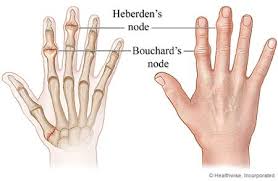Female Sex Addiction Linked to Adrenal Exhaustion
Female Sex Addiction Causes Adrenal Exhaustion
Sex addiction is a compulsive behavior that completely dominates the addict’s life. The addict is willing to sacrifice what he/she cherishes most in order to preserve and continue his/her unhealthy behavior. They use sexuality to regulate their emotional life like relieving pain or anxiety. Addiction to sex like any other addiction is not free from causing serious pathological consequences. One such consequence is adrenal exhaustion.
What is adrenal exhaustion?
Adrenal exhaustion, also known as adrenal fatigue is a collection of signs and symptoms that makes the adrenal glands function below the optimum level. Adrenal exhaustion is most commonly associated with severe or long term stress, it can also emerge during or post-acute or chronic infections that a person has suffered from, especially respiratory infections like bronchitis, pneumonia or influenza. The major cause of adrenal exhaustion is fatigue that is not relieved by sleep but it is not a readily identifiable entity like measles, gout or growth. Those who have adrenal fatigue look and act relatively normal and may not have any obvious signs of physical illness, yet they live with a some sense of unwellness, tiredness or “gray” feelings. they are lacking in energy in energy and drive . often those suffering from adrenal fatigue will take stimulants like coffee to help boost their energy levels are relieve them. these stimulants are taken in the morning and can be chipped in as a boost during the day.
This syndrome has been known by many other names throughout the past century, such as non-Addison’s hypoadrenia, sub-clinical hypoadrenia, neurasthenia, adrenal neurasthenia, adrenal apathy and adrenal fatigue. this is a serious condition affecting millions of people worldwide but it is yet to be recognized as a distinct disease.
Adrenal fatigue can cause nightmares if it affects you. This syndrome can be so serious that it will render the activity of the adrenal glands so diminished that any affected person may have to spend most of their time in bed as the fatigue won’t let them stay active or even sit for few hours. As the condition deteriorates the body organs and systems become adversely affected. it will cause changes in your protein, fat and carbohydrate metabolism, fluid and electrolyte balance, heart and cardiovascular system. if affected a person will lose his sex drive and prowess. Many other changes take place at the biochemical and cellular levels in response to and to make up for the reduction in adrenal hormones that occurs with adrenal exhaustion. Naturally, the body will try to make up for the malfunctioning of the adrenal glands but there is a collateral damage.
.
How does adrenal exhaustion occur?
Adrenal fatigue is produced when your adrenal glands cannot adequately meet the demands of stress. The adrenal glands will mobilize your body’s responses to every kind of stress be it physical, emotional, or psychological stress, through hormones that regulate the production and storage of energy, impulse rate, immune function, muscle tone among other processes that enable you to cope with the stress. Adrenal glands responds to all kinds of stress indiscriminately, it doesn’t matter if you have an emotional crisis such as divorce , a physical disaster such as amputated limb, or any other stressors of life, the adrenals have to respond to all these and maintain the body balance. When this isn’t possible fully then, you will suffer from adrenal exhaustion.
Incase of adrenal fatigue your adrenal glands may function, but they cant work better and ensure optimal body balance as their output of regulatory hormones has been floored usually by over-stimulation. it may take repeated stressors or just an intense stress to cause adrenal glands overstimulation.
How does female sex addiction cause adrenal exhaustion?
It has been known that masturbation causes buildup of cortisol in the body. Cortisol, also known as a stress hormone, is a host of many adverse effects when overproduced. It is the major cause of chronic fatigue which may stem from drug use poor sleep or unhealthy diet.
Chronic & Adrenal Fatigue resulting from over engagement in sexual activity develops in stages. In initial stages the signs of uncharacteristic tiredness will be seen. This tiredness will not only persist, but will grow over a time. When it finally t develops into a severe condition (stemming from severe sexual addiction), individual experiences irritability, concentration issues and lethargy.
Cortisol’s Role
When a person experiences danger or stress, cortisol increases blood sugar. This chemical change helps a person endure short periods of stress. Because sex and masturbation produce stress, the body releases more cortisol.
Constant craving of sexual activity creates a state of chronic cortisol elevation, which results in fatigue.
Are there other associated problems?
With long periods of exposure to cortisol, other problems may occur, including:
- Low sex drive and libido
- Immunity suppression
- Higher blood sugar level
- Hypertension
- Insulin resistance
- Carbohydrate cravings
- Fat deposits on the face, neck, and belly
 People with chronic fatigue often feel as if they are waging a battle with their bodies every day. Chronically fatigued individuals can experience severe depression and stress that interferes with sleep. Inadequate sleep can diminish the liver’s ability to breakdown cortisol.
People with chronic fatigue often feel as if they are waging a battle with their bodies every day. Chronically fatigued individuals can experience severe depression and stress that interferes with sleep. Inadequate sleep can diminish the liver’s ability to breakdown cortisol.
Knowing how serious the effects of sex addiction can be, we at AWAREmed Health and Wellness Resource Center are committed to availing help to addicts and offering them the most needed support as they wrestle to put their lives back in order. For more information and expert advice, don’t hesitate to call on Dr. Dalal Akoury (MD) today and begin your journey to victory against addiction.
Female Sex Addiction Causes Adrenal Exhaustion























